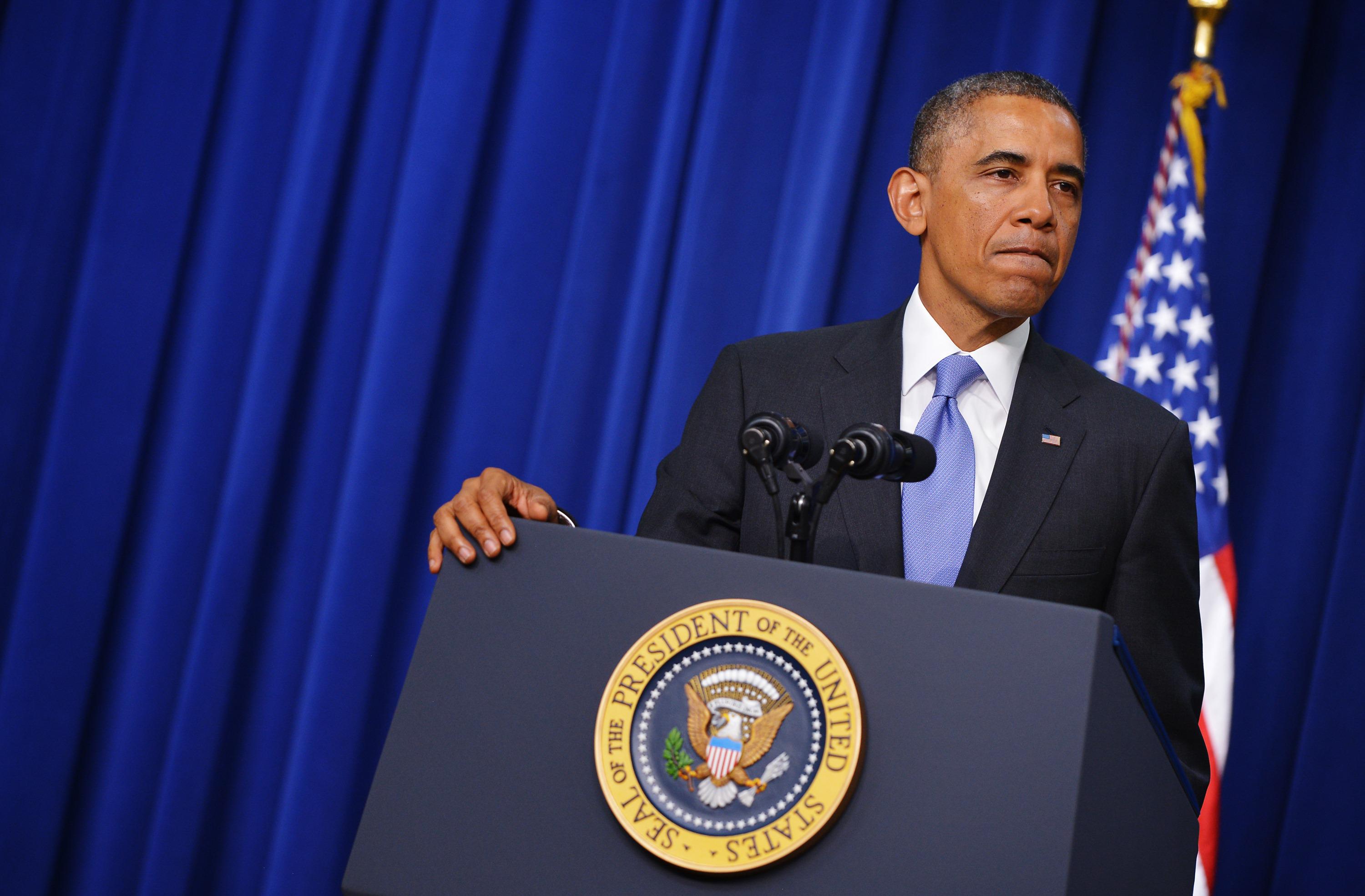President Obama is set to give his big NSA speech later today, when he’s expected to lay out how he plans to reform the spy agency’s Edward Snowden-revealed surveillance programs. The big takeaway, according to those White House officials who have previewed the speech, will be the president’s announcement that he “will order a transition that will end the Section 215 telephone metadata program as it currently exists, and move to a program that preserves the needed capabilities without the government holding this data.”
The section 215 in question is found in the Patriot Act, and allows the government to compel companies to hand over business records for counterterrorism purposes—a provision that has allowed the NSA to collect vast amounts of basic telephone call data on both foreigners and Americans.
As significant as the to-be-announced reforms sound at first blush, it’s worth noting that the preview includes a few key, wiggle-room-providing words, including “will order a transition” (translation: it’s going to be a process, perhaps a long one) and “as it currently exists” (translation: it will definitely still exist in some capacity). Here’s how the New York Times sums up the proposal everyone will be talking about:
A review panel appointed by Mr. Obama recommended that the government no longer be allowed to hold the data and that instead it be left in the hands of the telecommunications firms or an independent third party and tapped only with permission of a judge. The telecommunications firms, however, objected to being the repository of the information and no independent third party currently exists, so Mr. Obama will call for further study to decide what to do with the data.
Attorney General Eric H. Holder Jr. and intelligence agencies will be assigned to report back to Mr. Obama by March 28 on how the program can continue “without the government holding the metadata,” said the administration official. At the same time, Mr. Obama will consult with Congress to seek its views. Any change could require legislation.
But, as Politico notes this morning, finding a workable system for storing the data in the private sector will be easy to propose but difficult to execute. For starters, there’s the basic but big questions of what does the new metadata storing system look like and how does it work. But, on top of that, Obama will also to face plenty of push back from both those NSA backers who say that any extra layers of bureaucracy placed between the agency and the data will by definition lead to delays in tracking down potential leads, and from NSA critics who will fear the reforms don’t go nearly far enough.
And even if the White House is able to land on a workable solution, it could then be faced with perhaps an even more daunting hurdle: shepherding the reforms through a seemingly always gridlocked Congress in a midterm election year.
Slate will have more coverage of the president’s speech (set for 11 a.m.) later today. Stay tuned.
***Follow @JoshVoorhees and the rest of the @slatest team on Twitter.***
